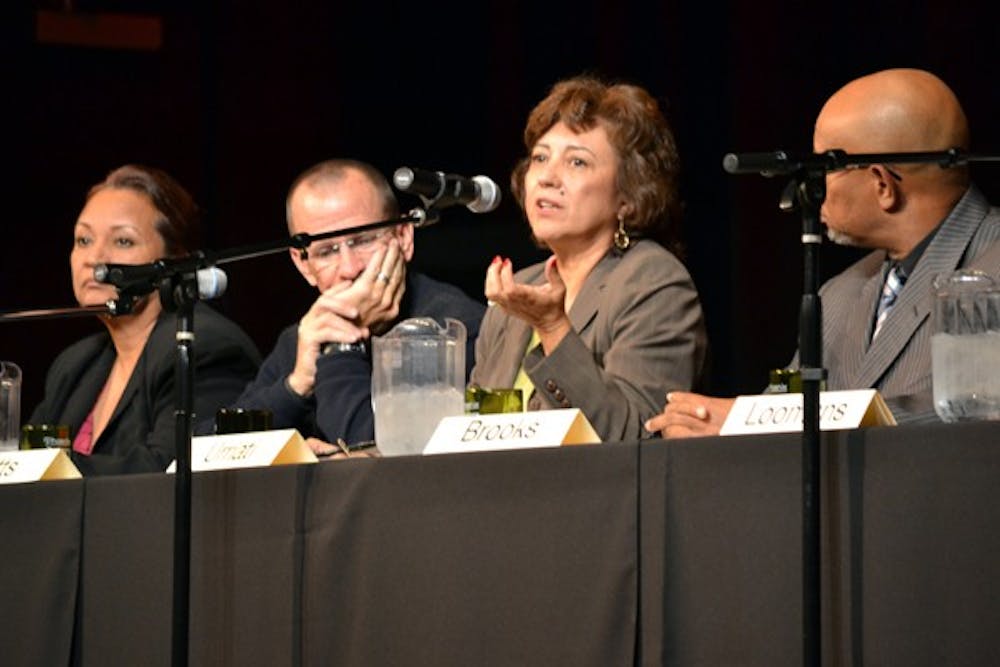A panel discussion Tuesday night on Phoenix’s recent distinction as the world’s least sustainable city soon evolved into a commentary on city social issues by sustainability experts.
At the George Washington Carver Museum and Cultural Center in downtown Phoenix, Charles Redman, founding director of ASU’s School of Sustainability, moderated the discussion between local leaders and Andrew Ross, the New York University professor whose book, Bird on Fire: Lessons from the World’s Least Sustainable City, prompted the meeting.
Although Ross described Phoenix as being “environmentally challenged in all sorts of ways,” and a “textbook example of environmental injustice,” he said public forums such as Tuesday’s discussion were a good start and are unique to the city.
“One of the things I love about Phoenix is that people talk about sustainability all the time,” Ross said. “In New York, where I live, the only people who talk about sustainability are those in the business.”
The panel, which included representatives from urban sustainability groups as well as former Arizona Attorney General Terry Goddard and an architect who focuses on sustainable building, began by discussing environmental sustainability issues specific to the Valley’s desert climate, such as water conservation, and then diverged into what they termed “social sustainability.”
Ross said a lack of social equality leads to eco-apartheid, where affluent communities benefit from environmentally friendly technology and poorer communities suffer.
Phoenix Revitalization Corporation CEO Eva Olivas, whose group focuses on revitalizing a section of downtown Phoenix south of the Capitol, shared her stories of working with communities on the development of the Metro Light Rail.
She said that the current government setup requires those without economic power to know the most about how to use government resources to aid their community, which rarely happens.
“The most frustrating part of working from the grassroots level is the failed connections between the city and state governments,” Olivas said.
Phoenix’s public transit system was a popular topic, with the panelists divided on the construction of additional freeways and the proposed expansion of Interstate 17.
“Whether it was right or wrong that we built this freeway system, we have a remarkable one,” said Steve Betts, the chairman of the Urban Land Institute’s Arizona District Council. “This will allow us to grow inside the city and avoid further sprawl.”
Other panelists were more opposed to the expansion of freeways.
Architect Taz Loomans rode her bicycle to the panel.
“My wish for Phoenix is that it can become car-light or car-free,” Loomans said.
This wish would only come true, sustainability consultant George Brooks said, if the transit system expanded to cover the whole Valley, instead of merely benefitting select groups.
“We need to start looking at solutions from the bottom level,” Brooks said.
Ross called Brooks’ Taz Loomans childhood neighborhood in South Phoenix the “dirtiest zip code in the nation” in his book.
Brooks and several other panel members commented on how Phoenix is a great place for opportunity, but that isn’t enough.
“We have to be more than just an opportunity oasis,” Loomans said. “That just means we have a lot of opportunity to screw up, and we have."
Reach the reporter at julia.shumway@asu.edu or follow @JMShumway on Twitter.
Like The State Press on Facebook and follow @statepress on Twitter.




